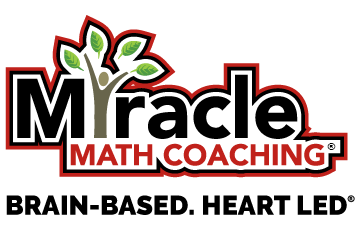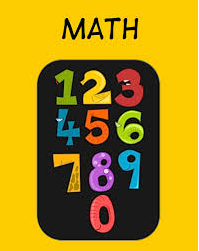Exploring American Attitudes Toward Math
What attitudes do American’s have toward math? It depends on who you talk to. But there are some common attitudes expressed among different groups of people that we should pay attention to when working to get kids more excited about math.
What attitudes do adults and parents have toward math?
Change the Equation, an organization that works to promote the STEM movement in multiple capacities, had Ogilvy PR conduct a survey about Americans’ attitudes towards math. The survey reached 1000 adults age 18 and over. Take a look at a few key findings from this study:
- Almost 30% of Americans surveyed believe they are not good at math, with a significant margin of women holding this attitude in comparison to men.
- About 36% said they have stated they can’t do math (again with a notable number of women holding this attitude more so than men).
- 63% of survey respondents say they have a difficult time doing math needed for everyday life (estimating distances, figuring out tax on items etc.)
- 30% “say they would rather clean the bathroom than solve a math problem.”
You can learn more about this survey here:
In a New Survey, Americans say, “We’re Not Good At Math”
This is a really important part of the discussion. Parents are the first educators in a child’s life. And while most parents innately want what is best for their children, there is a lot of diversity in how they view what’s best. Parents’ attitudes about math are shaped by their own set of experiences. So if you are a parent who hated math, had difficulty with math, or never saw the value in it, it is important that you don’t transfer those attitudes to your kids if you want to give them a better shot at being interested in mathematics.
In an article featured on the Scientific American site a few years ago, research conducted by the Girl Scouts was highlighted. Anna Kuchment writes:
“Parents play a major role in getting their kids interested in these subjects. Two-thirds of the girls who reported an interest in science, math or engineering had mothers or fathers who encouraged these interests, as compared to only one-third of girls who reported little interest in STEM”.
You can read the article here.
Kuchment also cites research from Jon D. Miller (and Linda Kimmel) in her article. A key statement in the research:
“There is substantial support for the impact of parent and home factors in the literature and the data from the LSAY provide a timely confirmation of the pervasive influence in parents in the system. At the most basic level, the likelihood that a young adult will enter post-secondary study is closely related to the level of the parents’ education (see Table 2). Nearly half of the children of parents without a high school diploma (or GED) never enroll in post-secondary education (PSE), compared to only 8% of the children of parents with a graduate or professional degree. And young adults who do not seek a baccalaureate will not become STEMM professionals.”
Read the article Pathways to a STEMM Career

So we know a few things that have been validated by research…
- A noteworthy chunk of the U.S. population has the attitude that they can’t do math.
- A child’s interest in math is strongly correlated to encouragement in math.
- If roughly 30% of the adult population has a negative attitude about math, then parents need to be aware of how their own attitudes may influence their kids.
For a bit more research and inspiration for how you can approach math with your kids to have a positive effect check out this article written by the founder of Bedtime Math, Laura Overdeck. One of the coolest concepts laid out in her article is pointing out how American’s have a completely different approach to literacy than math. Most would agree that reading books to small children is a really great idea. So why aren’t we approaching math the same way?
What do experts and researchers think or believe about math?
This is the broad group of people in the U.S. that believe that good math skills are essential for our kids to compete in the global market and keep up with new advances in science and technology. No one really disagrees with this attitude, the problem comes in with the differing opinions about how things should be done and why things are the way they are.
Elizabeth Green is the cofounder of the nonprofit news site Chalkbeat that covers education topics and discussion. She wrote an article last year that appeared in the New York Times Magazine that while inspiring a bit of controversy, did a great job of getting people actively talking about American students’ overall lower performance in mathematics:
Why Do Americans Stink at Math?
To learn a bit more about Elizabeth Green and her world view check out this piece that was covered on NPR a few months later:
‘Building A Better Teacher’: Dissecting America’s Education Culture
Green’s article set off a tail spin of response articles. One was from Tom Loveless, of the Brown Center on Education Policy at Brookings. Loveless clearly stated his respect for Green but challenged that a particular approach to mathematics being the answer is not supported by evidence and that Green’s article contained a few points of contention:
Six Myths in the New York Times Math Article by Elizabeth Green
Of course math teachers will have a good attitude about math (let’s hope) because they have chosen to teach math for a reason. An interesting blog post based on a bit of research conducted outside of the U.S. asserted that teacher bias towards girls may exist. Basically the premise that some teachers may be promoting stereotypes about girls in math by assessing them more harshly. It is very important to remember that this is based on only one set of data (as with most research). But it may cause people to pause for a second and consider how deeply ingrained certain attitudes about gender and math really are. Check out the blog here with direct links to the report.
For more discussion on stereotypes and math check these out:
The Stereotypes That Distort How Americans Teach and Learn Math
Study debunks myths about gender and math performance
In an article featured on Business News Daily, the author discussed a new perspective on why women who are strong in math often select to go into fields that are not considered STEM fields. The research out of the University of Pittsburgh and the University of MIchigan indicated that often times women who are very strong in mathematics may also have very strong verbal skills, leading them to have more career options to explore. You can read more here.
What do kids think about math?
A few key findings from research conducted by the Girl Scouts:
- 74% of teen girls surveyed are interested in STEM subjects
- Those who are interested in STEM are statistically more interested in doing hands on activities, knowing how things work, asking questions, and solving problems than those who are not.
- Girls interested in STEM self report more confidence in their intelligence and drive.
Girls in this study who identify as interested in STEM subjects have more support from parents and encouragement to be interested in these subjects. Many know someone in one of these fields and also report doing more activities such as visiting science or technology museums. One thing to keep in mind is that roughly 50% of the respondents were Girl Scouts.
Generation STEM: What Girls Say About Science, Technology, Engineering and Math
There is quite a bit of info out there that shows that many kids still have a very negative attitude about math, yet studies of very young children show more confidence and interest. This could support the idea that younger children are more resilient to stereotypes in some ways, that they are too young to have experienced parents’ negative attitudes about math, and perhaps it is because they haven’t been in public schools long enough to feel the stress that all of the chaos is causing yet.
Here are a list of links for both parents and educators with great tips for recognizing attitude impact and building a positive attitude in children towards math:
Why Kids Take on Adults’ Math Anxiety
Positive Attitude Helps Kids Succeed in Math
PBS Parents: Helping Kids Develop Positive Math Attitudes
Doing Mathematics with Your Child
So what is the point of all this?
In a time when education is once again in the hot seat, with the Common Core and assessment methods such as PARCC stirring up intense controversy it is important that people do not let their attitude or opinions about education and assessment shape how they view the importance of math. Americans need to stay focused on what matters most, and that is equipping children with not only the skill set to be successful in mathematics but the desire to learn, an inquisitive nature, and the confidence to believe that he or she can do anything. This has always been important, but perhaps more vital now than ever before.
The beautiful thing about attitudes is that we can change them. American’s success in mathematics does not exclusively rely on one curriculum or another. We need to restore that sense of wonder and curiosity.
Check out this rather entertaining video by the vlogbrothers.
There is no such thing as a math person. Anyone can do math, it just takes work.
What are your attitudes about math?







